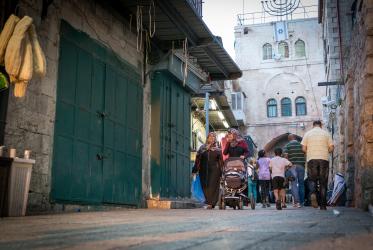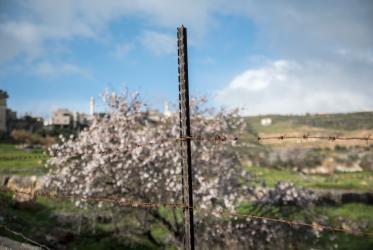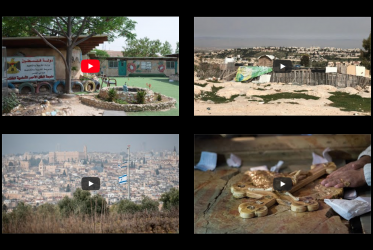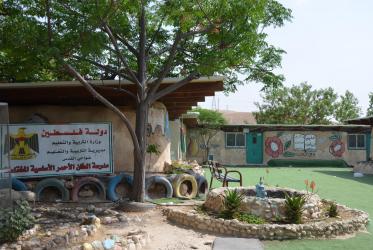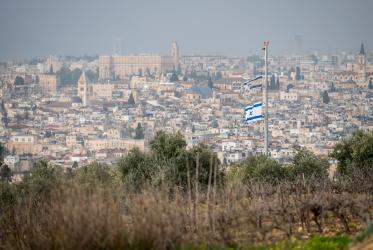Displaying 41 - 60 of 381
Easter Initiative Bible Study: Home Is Sacred
14 March 2022
In East Jerusalem, “we will never give up our rights”
29 October 2021
Defending the ‘blue soul of life’
08 April 2021
Bedouins of Pope’s Hill fight eviction
30 March 2021
East Jerusalem: Denied citizenship and the vote
30 March 2021
